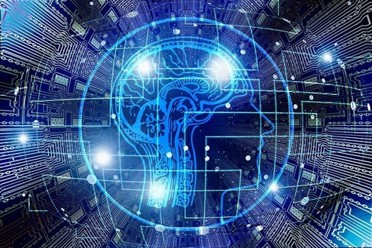Artificial intelligence in Europe: towards a responsible and promising future with the AI Act
By Ahmed Fessi, Chief Transformation & Information Officer, Expensya/Medius
Artificial intelligence is turning our world upside down, transforming whole areas of our daily lives. Aware of the immense potential of this technology, the European Union is firmly committed to responsible and ethical AI with the AI Act, a pioneering legislative proposal adopted in December 2023.
The AI Act is the world's first comprehensive legal framework dedicated to AI. Its strength lies in its categorization of AI systems according to their level of risk, enabling a nuanced and tailored regulatory approach. This categorization is in line with the principles of the European approach to excellence and trust in AI, guaranteeing the responsible and ethical development of this technology.
The AI Act: a graduated approach to counter the risks of AI
Some AI applications deemed too dangerous will be banned outright. This is the case for manipulative AI targeting vulnerable populations or blind social rating AI, which would infringe fundamental rights and human dignity. Exceptions do exist, such as the use of remote biometric identification for serious criminal investigations, under strict judicial control.

AI with a high impact on security or fundamental rights is subject to strict requirements. Divided into two sub-groups (products subject to security laws and specific sectors), it is subject to rigorous assessments before and during its lifecycle. Generative AI platforms, such as ChatGPT, fall into this category and must comply with transparency standards, guarantee non-illegal content and provide information on the data used for their learning, in accordance with the requirements of the AI Act.
Limited-risk AI systems are subject to minimum transparency requirements. Users must be informed about their interactions with AI, especially when it comes to generated or manipulated content, such as deepfakes.
The European Parliament: a vision for ethical and humane AI
The European Parliament is insisting on AI that is innovative, ethical and responsible, in line with the fundamental values of the European Union. The emphasis is on the safety, transparency, traceability, non-discrimination, fairness and environmental impact of AI systems. Human supervision is essential to prevent abuses and ensure respect for individual rights and freedoms.
The AI Act represents a historic step towards a responsible and promising future for AI in Europe. Its implementation will ensure that AI is a positive force for the good of society while stimulating innovation and economic growth, placing people at the heart of its development.
The IA Act: a roadmap for the future of AI in Europe
The AI Act is not just a law, but a roadmap for the future of AI in Europe. Its adoption by the European Parliament in December 2023 represents a historic step towards ethical and responsible AI that respects fundamental rights and the public interest.
The balanced approach of the AI Act recognizes the transformative potential of AI for European society and economy, while ensuring that the technology is used in a responsible and controlled manner.
Currently being examined by the European authorities, the AI Act is likely to become a global benchmark for AI regulation. Its final adoption and effective implementation will pave the way for a European AI future where innovation and responsibility combine for the common good.
It is still early to compare the European approach with that of other countries, such as the United States, but Europe is clearly positioning itself as a pioneer in the field, with the right balance between innovation and safety. Dialogue with the Member States will be crucial in finalizing the law and determining its practical impact, taking account of the needs and realities on the ground.




